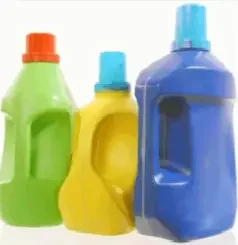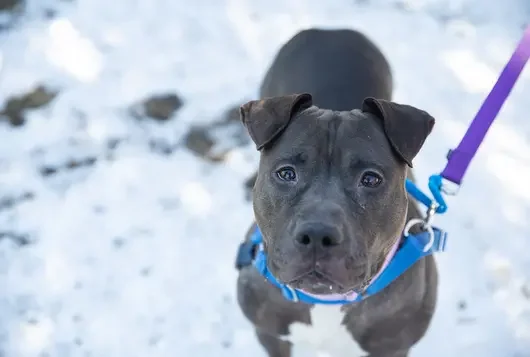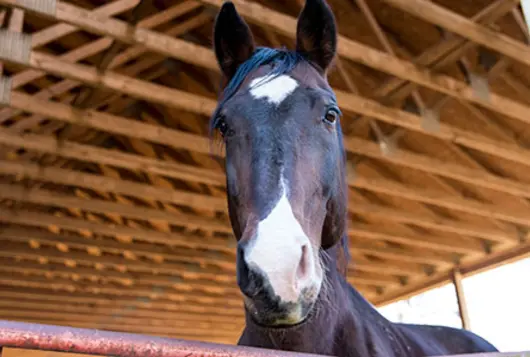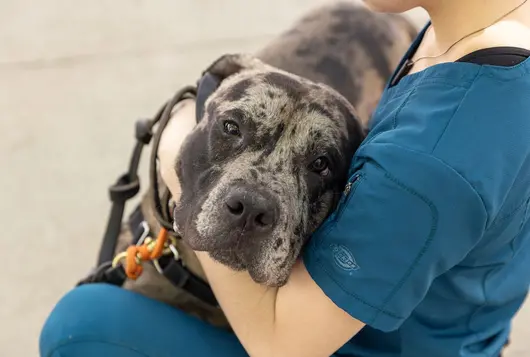Laundry Detergent Ingestion Case Study

Laundry detergent can cause severe clinical signs when ingested, including gastrointestinal problems and lethargy. Respiratory signs are also a prominent feature of these cases, and pets will often develop some referred upper airway noise secondary to pharyngeal irritation.
The biggest concern is that the pets who ingest detergent will aspirate and develop aspiration pneumonititis. In most of the cases where pets die of this intoxication, aspiration pneumonititis is the cause of death.
In mild cases, the pet may be able to be managed at home or on an outpatient basis. Pets with GI signs should have them managed with antiemetics and GI protectants as needed. Pets should be monitored closely for the onset of respiratory signs for the first 12 to 24 hours.
If respiratory signs are seen, pets should be evaluated. Pets with suspected aspiration pneumonitis will probably require hospitalization. Radiographs can be used to evaluate the severity of the pulmonary involvement; oxygen, fluids, coupage, nebulization and antibiotics used to prevent secondary infection. Bronchodilators may be indicated in these cases.
Detergent Ingestion: Test Your Treatment Strategy
Charlie is a 7-week-old Lab puppy. He was left in the laundry room while his owners were at work. Charlie pulled down a container of single-use laundry detergent packs and ingested one pack. Shortly after the owners returned home, Charlie vomited and bubbles were seen coming out of his nose.
Charlie presents to your hospital with continued vomiting and audible wheezing. Upon auscultation, his lungs sound wet.
What treatments and diagnostics may be beneficial for Charlie?
- Antiemetics
- Activated Charcoal
- Gastrointestinal protectants
- Radiographs
- Nebulization
- Bronchodilators
- Antibiotics
- Apomorphine
- Coupage
- Diazepam
- Oxygen
- Antiemetics. Yes, an antiemetic would be very beneficial for Charlie. He has continued vomiting and is at risk of aspiration as he is doing so.
- Activated Charcoal. No, there is no evidence that it would be helpful in this situation.
- Gastrointestinal protectants. Yes, laundry detergent is irritating to the gastrointestinal tract and sucralfate +/- H2 blocker or PPI would be beneficial.
- Radiographs. Yes, especially with the wheezing and wet lung sounds, they would be very beneficial if there is aspiration pneumonitis. They are also very useful to compare later down the road.
- Nebulization. Yes, often nebulization will help keep the any debris in the lungs hydrated and help with its expulsion
- Bronchodilators. Yes, this can cause bronchospasm, so bronchodilators may be of benefit.
- Antibiotics. While this is a pneumonitis and not a pneumonia situation, antibiotics may be very helpful to try to prevent secondary infections in lungs that will not have normal defenses.
- Apomorphine. No, the pet is already vomiting and additional vomiting increases the risk of aspiration.
- Coupage. Yes, this can help rid the lungs of debris.
- Diazepam. No, there is no indication and sedating the pet will probably not be of benefit.
- Oxygen. Yes, often oxygen is needed in pets who are not oxygenating well.
We have lots more on this subject:




